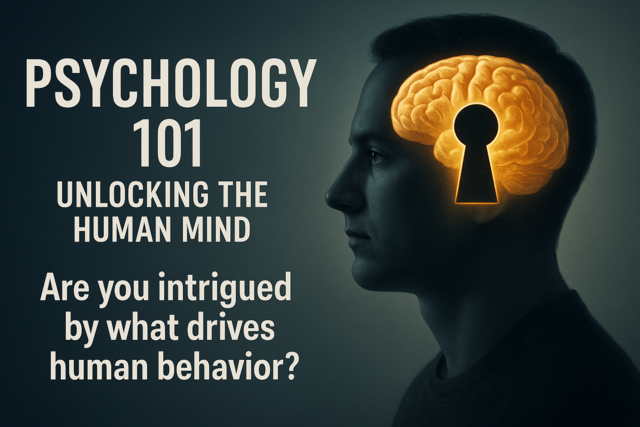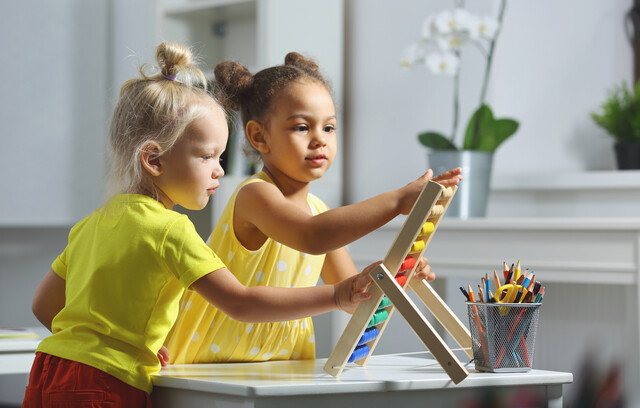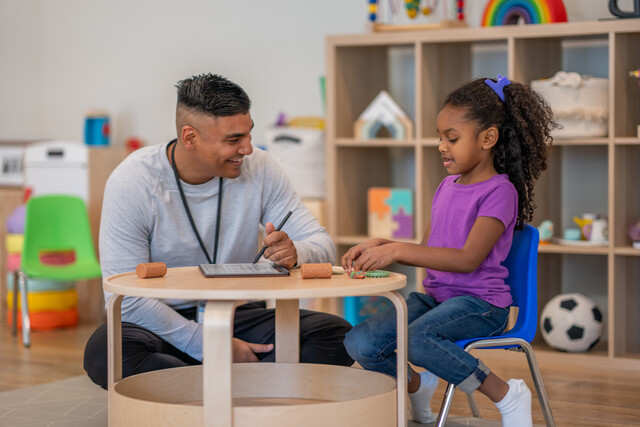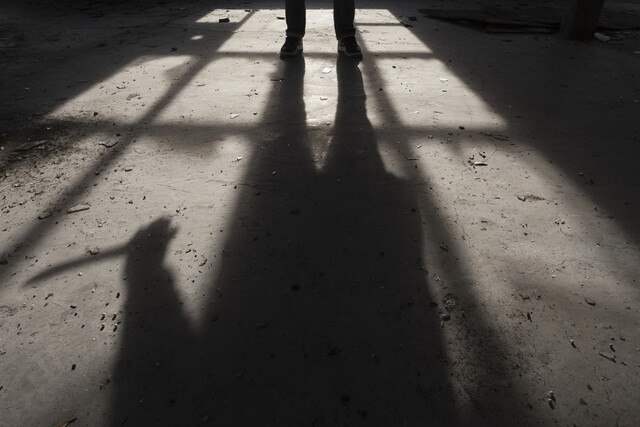Even though single-parent families face many challenges, there are many benefits involved, as well.
Benefits for the parent
Despite the extra work and unique stresses of being a single parent, many single parents prefer their solo role. Since seemingly no scientific studies on single-family satisfaction and benefits have been conducted, data is empirical.
According to many divorced single parents, the end of a marriage can mean freedom, as well as extra responsibility. As the sole parent in the household, you know exactly what needs to be done, and how to accomplish it. With no spouse to negotiate or argue with over day-to-day responsibilities and expenditures, things get done more quickly and efficiently. Sometimes, one doesn't realize how tiresome it's been to continually have to nag a spouse to take out the garbage, until you no longer have to. Knowing you, alone, are in charge can be quite liberating and empowering.
Single parents also cite increased bonding time with the children as a benefit. Without a spouse taking up time with needs and requests, a single parent has more time – and energy - for the children. Single parents are also able to arrange the family schedule without consulting, or being concerned with, the other parent. Often, single parents are more relaxed with their children because of this. Some single parents, particularly divorced women, state it's easier to be on their own with "one less child to care for." (Although there are certainly cases when a newly single dad has said the same thing!)
Lack of fighting between parents is another advantage of single-parent families. When a relationship is contentious and strained, fighting increases between parents, which negatively affects the entire family. Often the absence of parental conflict and arguing relieves tension and calms the household, resulting in more harmonious relationships. In some cases, a period of adjustment is needed before a calmer household becomes the norm; in others, where family relations have been particularly toxic, the positive effect can be immediate.
Additionally, single parents have a unique opportunity to role model strong, ethical behavior for their children. By negotiating day-to-day challenges, handling emergencies, and being there for the child, a single parent shows their child that it is possible to live and thrive on one's own. This is particularly helpful if the child's other parent is a poor role model! If single-family status is due to the death of a spouse, modeling strong behavior, while allowing your child to understand that you also mourn, is crucial to healing for both (or all, in the case of multiple-child families) of you. Being "too strong" in front of the children may lead them to believe you don't miss or feel the loss of the deceased parent, which is quite upsetting for them.
In some cases, where the noncustodial parent has weekend or overnight visitations, custodial parents admit that time for themselves is another advantage of being a single parent. It may seem a selfish thing to say, but consider this: Every other weekend (an example of a standard arrangement), the kids go visit Mom or Dad, and the single parent has up to two whole days of uninterrupted time. Quite honestly, how many married parents can count on the opportunity for a "mini-vacation" every two weeks? Of course, it doesn't always turn out to be a relaxing time, but having the house child-free allows the single parent uninterrupted time to compete chores or projects that have gone undone or unfinished in the normal hustle and bustle of everyday life. (Getting a chance to sleep in also rated high on the list of activities single parents do on "visitation days.")
Across the board, the number one advantage cited was the end of the need for negotiation on parenting issues at home. What the single parent says at home, goes, and there is no one around to contradict them. This eliminates parental arguing and negotiating over the welfare of the children (not to mention all the other little things couples argue about). Not only less stress, but a time-saver, as well.
Selfish as it may sound, not having to share with a spouse or partner can also be liberating. Not having to share time, money, the children on a daily basis, or information you do not wish to divulge results in less stress and can be life-changing if your former partner was controlling. One single mother, whose former husband, an alcoholic, is very stingy financially, and often became angry over money during their marriage - particularly when she "spent too much" on the children's birthday parties (basically, any money at all) - stated one of the happiest days of her life after the divorce was the day she was able to give her child the birthday party she wanted to with no argument or repercussions. "I think I was happier than my son that day," she remarked.
Despite the somewhat scary prospect of being on your own and parenting the children solo, being a single parent can be a wonderful, strengthening, empowering experience. Overcoming hurdles, negotiating day-to-day disasters and conflicts, and watching your children become strong and confident are just a few of the rewards to be reaped by single parents. As an added bonus, the more you accomplish, the better and more confident you feel about yourself and your abilities – and the more you want to accomplish. Having your children watch you grow will help them grow, as well.
Benefits for the children
Many of the benefits of single parenthood benefit the children, as well. Lack of parental arguments, for example, will ease stress and tension for both parent and child. This is particularly true if the former spouse was abusive, or the relationship was particularly contentious. Lack of conflict can make a child feel more secure in his environment.
Parental role modeling benefits children by not only providing a good example, but instilling in them the knowledge and confidence that life can be lived on one's own without the need to rush into, or remain in, an unhealthy relationship. Good role modeling allows children to feel safe about their ability to competently negotiate the challenges of life.
Children of single-parent families usually have shared responsibility for the well-being of the family. Instead of "busywork" chores for allowance, their contributions to the family help make the family run smoothly, as a unit. This instills in children a sense of pride in accomplishment, consideration for others, and a solid work ethic. It is, however, reasonable to have a set list of larger, perhaps weekly chores for which a parent pays allowance, such as yard work or vacuuming. Daily chores, like picking up toys or putting dirty clothes in the hamper, can be expected to be competed regularly with little or no prompting from the parent.
Increased responsibility also allows children to feel part of the family "team," not just "the kids" vs. "the parents." Since parent/child relationships in single parent homes are often closer and more intertwined, the children know their contributions to the family really count. This helps their sense of self-esteem and self-worth. Compensation for daily chores should be praise, not profit; it's the daily chores that make Team Single-Parent Family run smoothly.
Because they have greater responsibilities at home, teenage children from single-parent families often exhibit more confidence and autonomy. Having had to care for themselves, and sometimes younger siblings, teenagers from single-parent homes have built confidence in their abilities. Additionally, teens in single-parent families who have close, healthy relationships with their parents are often more capable of taking on the "real world" when they reach adulthood. Greater chances for exposure to "adult" tasks, such as balancing the checkbook, paying bills, and planning meals often give children in single-parent families an advantage when first out on their own – they know what they must do, and in what manner.
Since single parents often have a "network" of help from family, friends, church, or single-parent clubs or activities, the children are also able to experience a strong sense of community. There are numerous communities, both online and actual meeting places, which cater to single-parent families. Often, these organizations will sponsor "open" activities, where parents and children can mingle and make new friends.
Many studies have been conducted, and much has been written, about the negative effects on children of single-parent families. The first few years after divorce are usually the most difficult for both parents and children - the entire landscape of family life has changed and there are many adjustments to be made.
Challenges for the parent
Parents in today's society are always under scrutiny -- single parents, even more so. While there are many challenges associated with parenting, in general, these issues, as well as unique circumstances and problems, exist for single parents. In 1992, when the television show "Murphy Brown" had the main character choose to have a child outside of marriage, then-Vice President Dan Quayle publicly bashed Murphy Brown's "lifestyle choice." Single parents seem to continually be on the "firing line" for criticism, both publicly and privately, and for those needing assistance, it can be even more intense.
The greatest issue is, once again, poverty. The pressures (and upset) of constantly worrying about money causes intensestress. Results of extreme stress include depression, exhaustion, illness, short temper, and inability to function. Add to this the sadness parents in poverty experience when they have to say "no" to their children's needs and wants, and it's easy to see how poverty can become overwhelming.
Unfortunately, social service agencies can make the situation worse. Often, single parents eligible for assistance are made to feel belittled, ashamed, and inadequate for needing help. In the case of never-married young single mothers, both system and society often have an instant perception of a slovenly, lazy individual having multiple babies for welfare benefits. Some "welfare mothers," however, are actually fathers, and most single parents are far from lazy or slovenly, and truly dislike taking assistance. But when your child needs food, clothing, or becomes ill and you have no resources, you'll swallow your pride and do what needs to be done. This is much more difficult than most people imagine.
Even if a single-parent family is not living in poverty, money is likely to be tighter than when both parents were part of the household. Even if you have "enough," it may be quite a bit less than what the children were used to. Big changes, such as loss of a parent via divorce or tragedy, living arrangements, loss of financial status, estrangement, abandonment, and loss of community or support systems are all upsetting for adults, but even more difficult for children. Even if there is "enough," a drastic drop in family income, especially when coupled with a move to a significantly different SES neighborhood, can be very traumatic for both parent and child – and not just due to loss of "status symbol." Such changes alter things on a deeper level – a different environment can mean less safety, more danger, greater chance of difficulties or conflicts, feelings of insecurity, loneliness, isolation, and fear.
Single parents often face healthcare issues. For parents that have health insurance through employment (their own or the other parent's), premiums can increase, further straining finances. If healthcare assistance is provided by state or federal agencies, it is likely only the children are covered, leaving the single parent to negotiate healthcare on their own. Often, single parents will ignore their own healthcare needs for lack of funds or resources.
Loneliness is another challenge single parents face. Not only is the single parent unable to share day-to-day difficulties and responsibilities with the other parent, they cannot share the joys either. If the parent is single due to death or tragedy, it can be even more difficult and isolating. And it may surprise some people to know that a sense of loss can accompany single-parent status, even if the relationship left behind was contentious – becoming a single parent is a big life change, and we tend to remember more good things than bad when we reflect.
There is also a chance that conflict with the other parent will continue, particularly over visitation and support issues. If the other parent is controlling, a custody battle can result, often going back and forth for years. An extreme example of such a situation is a couple we'll call Bruce and Linda. Linda already had two children from a previous marriage when she met and fell in love with Bruce. Never married and with no children of his own, Bruce seemed eager to marry Linda and become the father of an "instant family." Additionally, he wanted them to have a child of their own. Even though Linda hadn't wanted any more children, she decided she'd have another child with Bruce. When their beautiful daughter was born, Linda remained the family breadwinner while Bruce stayed home with the children. When their little girl was 5, Linda discovered Bruce was cheating on her with multiple women. He left when she confronted him, then waged a lifelong battle to take their daughter from Linda. Luckily, Linda was an excellent parent, who was careful not to badmouth her child's father, and as the girl matured, she realized for herself how controlling and manipulative her father was. While she loves him dearly, she realizes he has emotional and psychological problems (the man is a diagnosed sociopath, which was discovered after the divorce), and carefully chooses her interactions with him. Her decisions were based on her own healthy observations, not her mother's anger or bias.
In the work force, single parents, especially those with limited resources, are at a disadvantage. Often, single parents must take time off for illness (the child's or their own), an emergency, or a scheduled appointment for the child. Absenteeism at work can cause enormous problems for a single parent, including loss of the job. While some employers have contingency plans for such situations, more do not, leaving the single parent on their own to balance both work and their child's needs.
Children of single parents face adjustment difficulties at home and school. Some of the issues single parents face, such as apoverty, sense of loss, and continued exposure to parental conflict, also exist for the children, but the impact differs. While a parent's sense of loss stems from missing a partner with whom to share life experiences, a child's loss is of a protector and guide. This can be quite fearful for children, especially when they are young.
During the first few years after divorce, children have increased rates of anxiety, aggression, difficulties in school, and antisocial behavior than their two-parent counterparts. Since decrease in income and adult supervision may be partly responsible for these issues, effects can be offset and resolved with sufficient income, parental supervision, and consistent social networks (McLanahan and Sandefur 1994).
The statistics regarding children from single-parent homes, and education, are not encouraging. Multiple sources, both scientific and empirical, state children of single-parent families have lower test scores and higher school dropout rates than children from two-parent families. Additionally, children of single-parent households have higher rates of absenteeism and overall lower education levels. They also suffer from decreased motivation.
Children of single-parent families have a greater chance of experiencing health-related issues, as well. Increased health problems are a result of lack of insurance coverage, and a decline in overall living standard (Mauldin 1990).
Additionally, children of single parents seem to have more difficulty forming relationships with their peers. Once they mature, they are more likely to marry and have children early, then divorce; and girls from single-parent families have a greater chance of becoming single mothers, themselves (McLanahan and Booth 1989).
Children in single-parent homes often have anger issues over the missing parent, especially during the first years after the divorce. Children may blame the custodial parent for "driving" the other parent away. The child's attitude may change, and they may grow sullen and angry, insisting they be allowed to live with the other parent. They may glorify the missing parent, "forgetting" bad behavior and exaggerating fond memories. Children may also begin to compare the absent parent to the custodial parent and insist the absent parent is nicer, more permissive, and more loving, even if the opposite is true.
Children may also feel "cheated" and take out their feelings on the remaining parent. Your child may say things like, "I hate you," "If you were nicer, Mom/Dad wouldn't have left," or "You messed up my life." It is important to remember such phrases come from a place of frustration and upset and, while these words are hurtful, they should not be taken to heart.

























